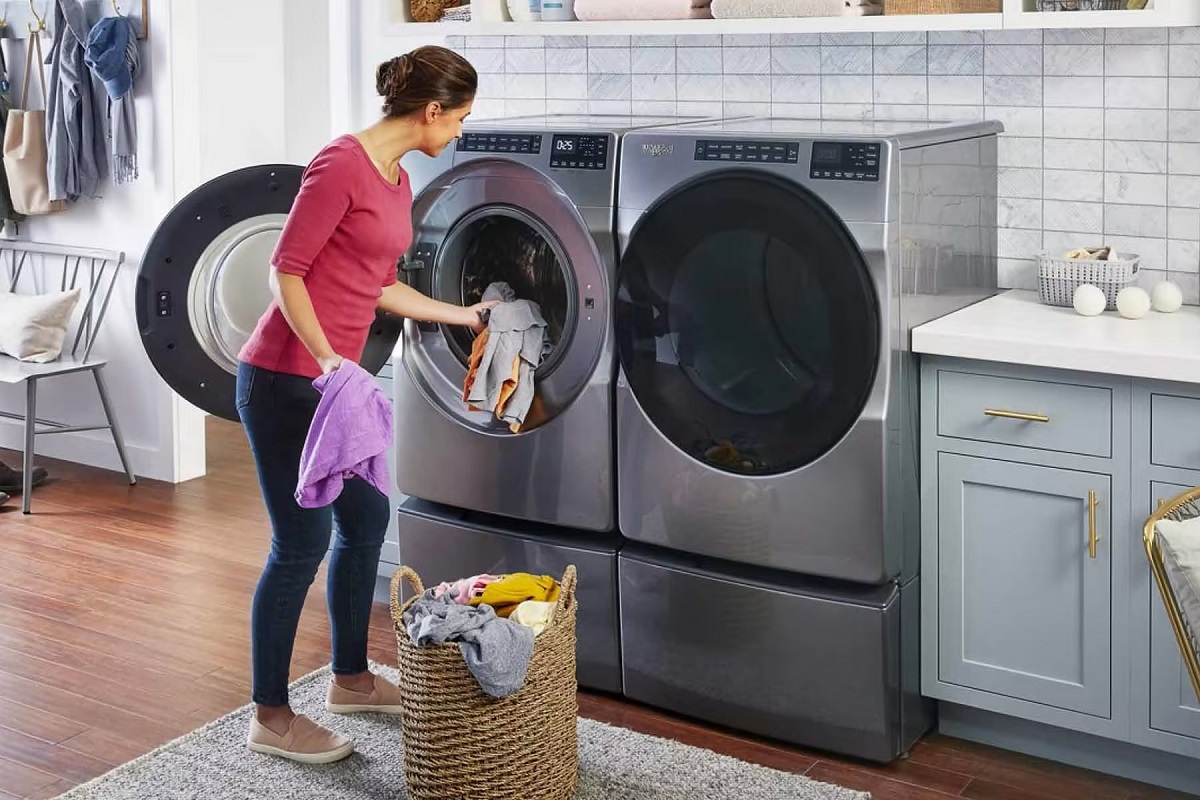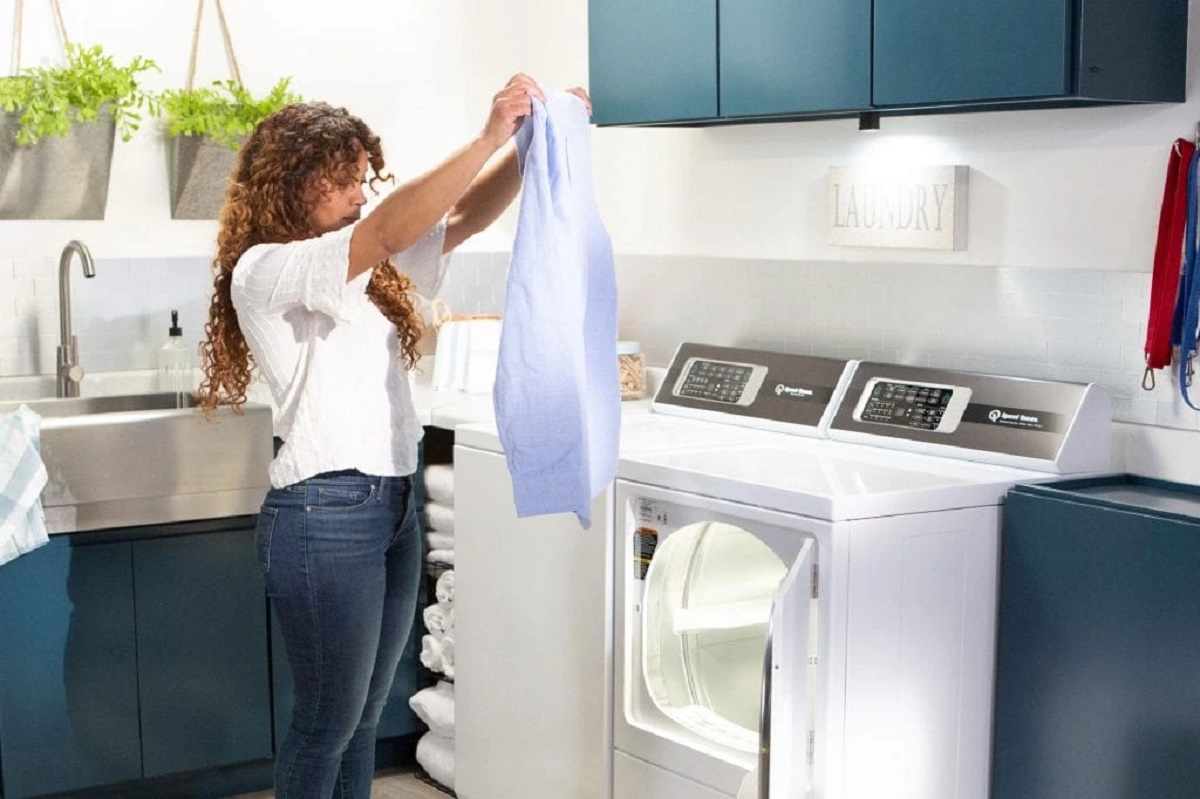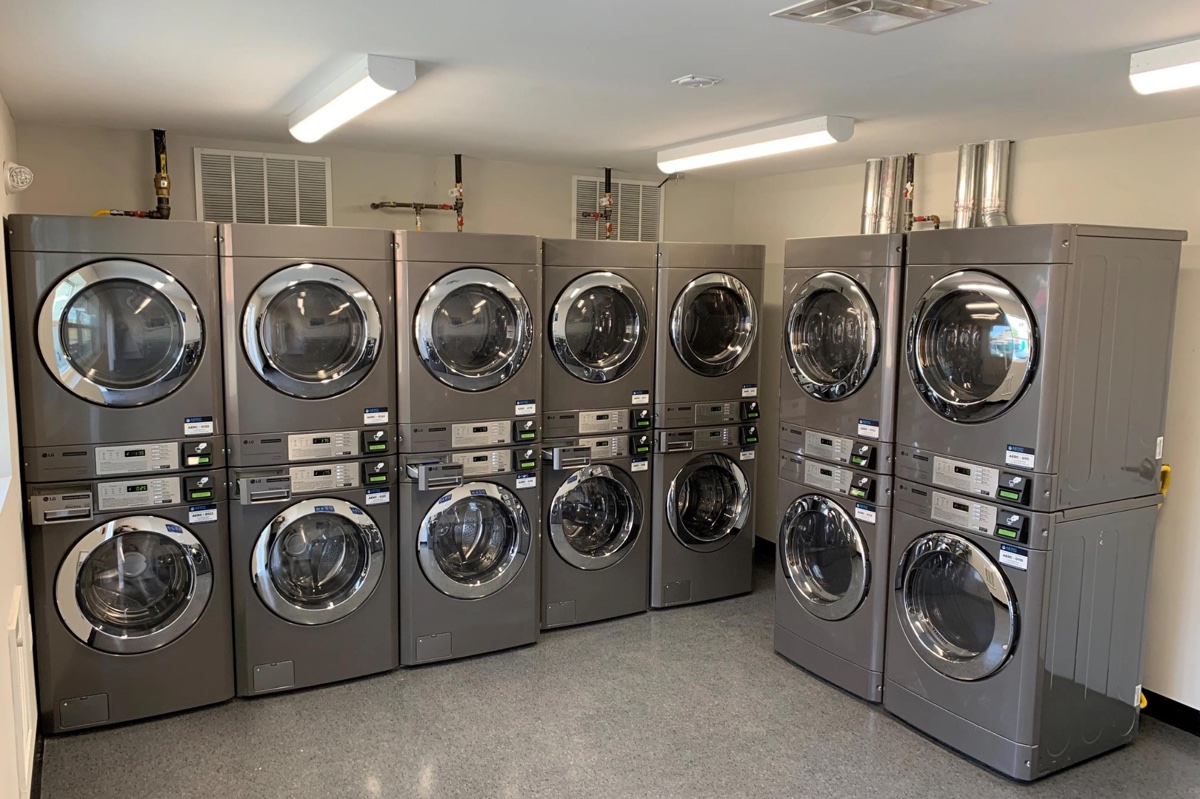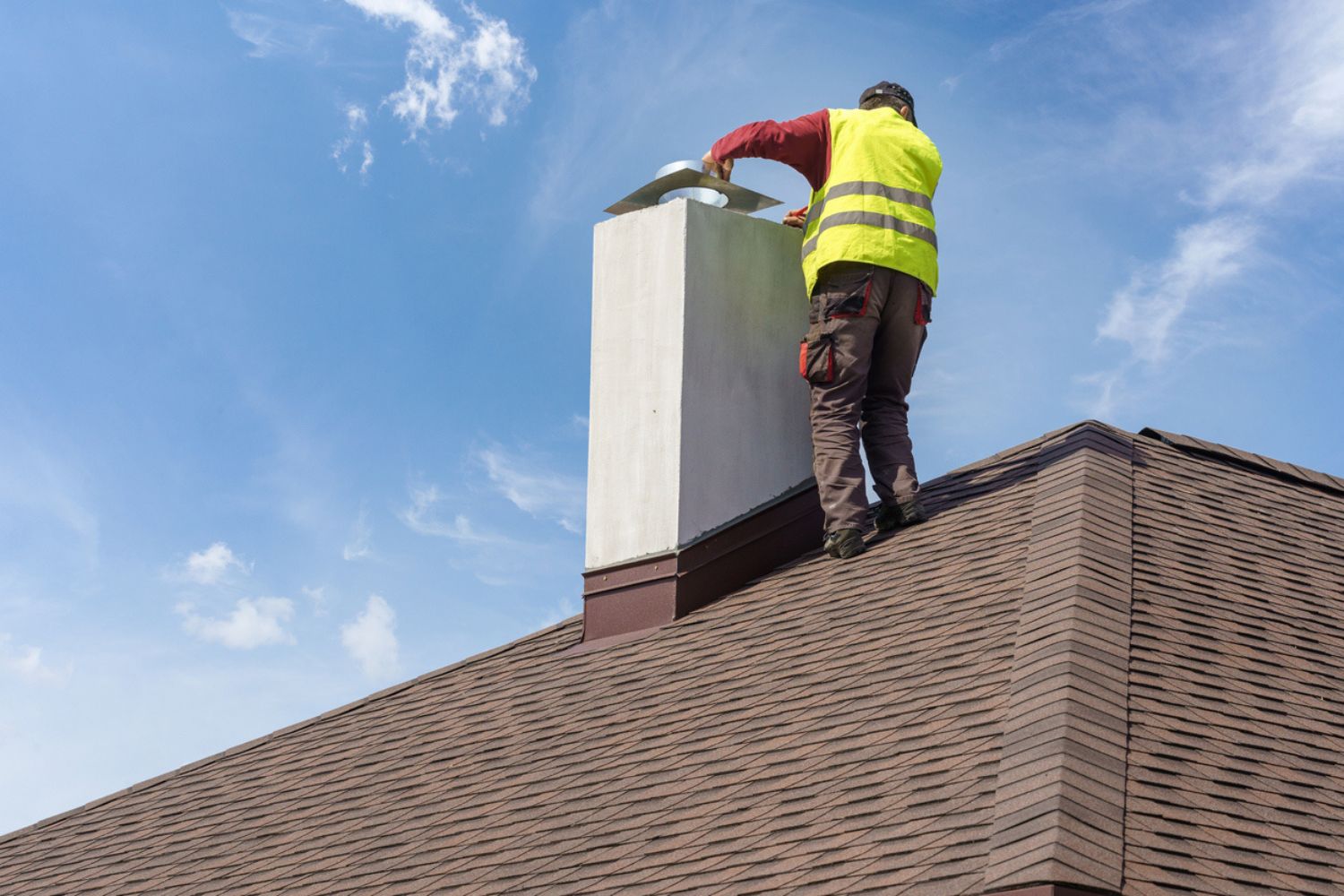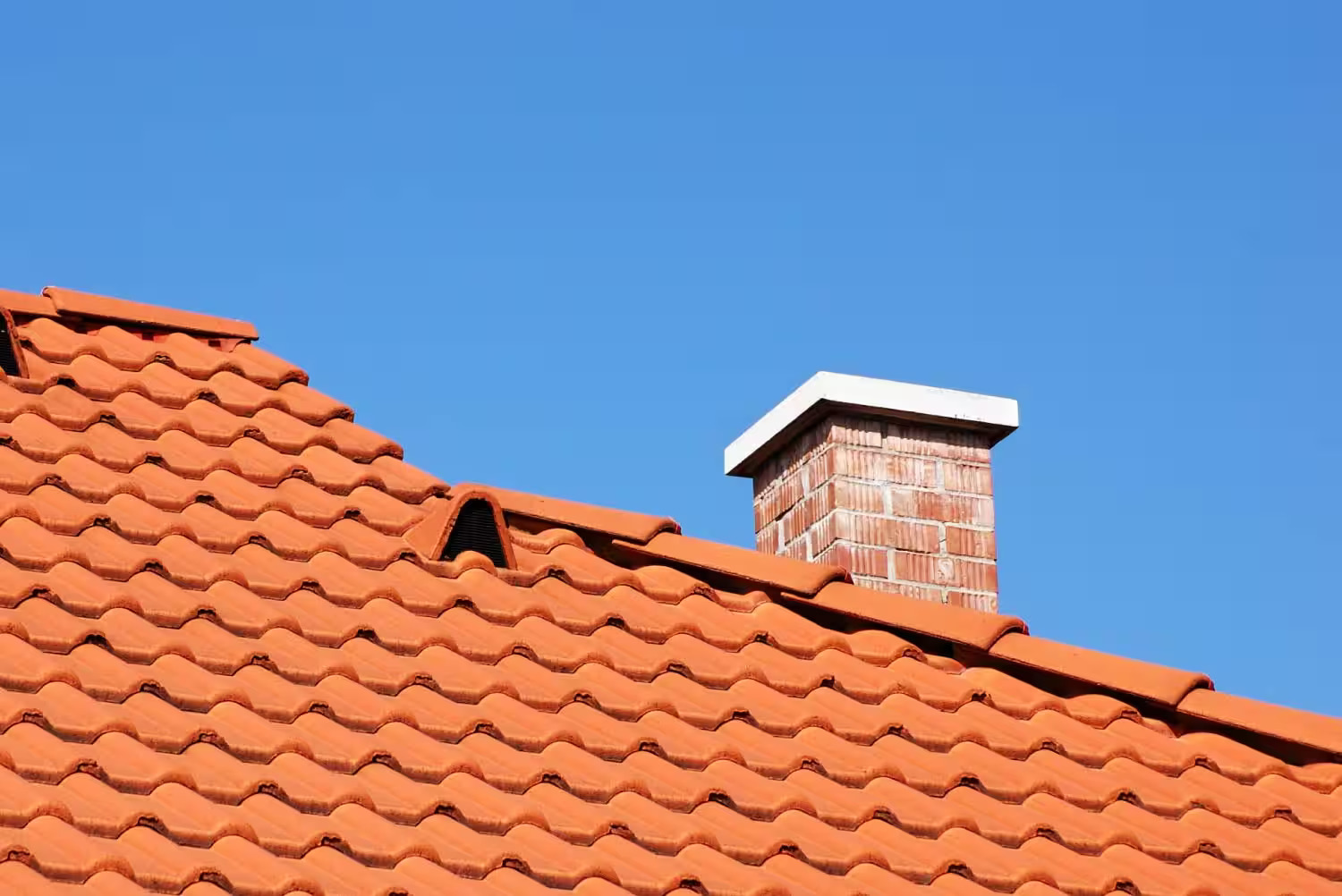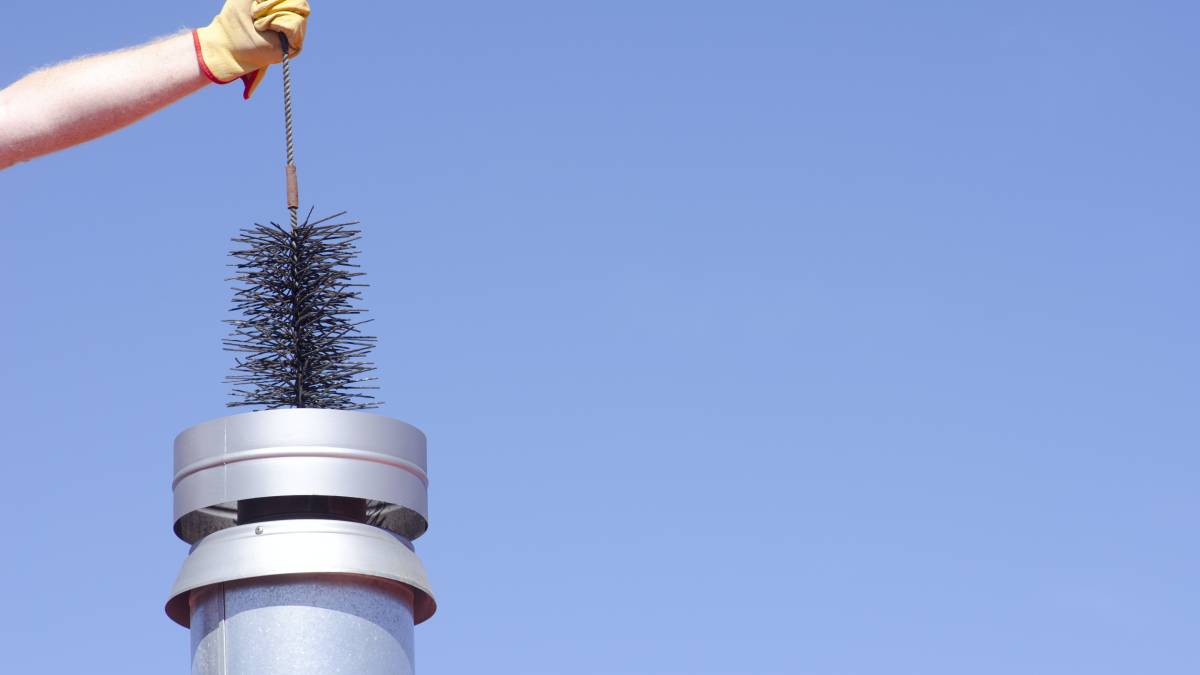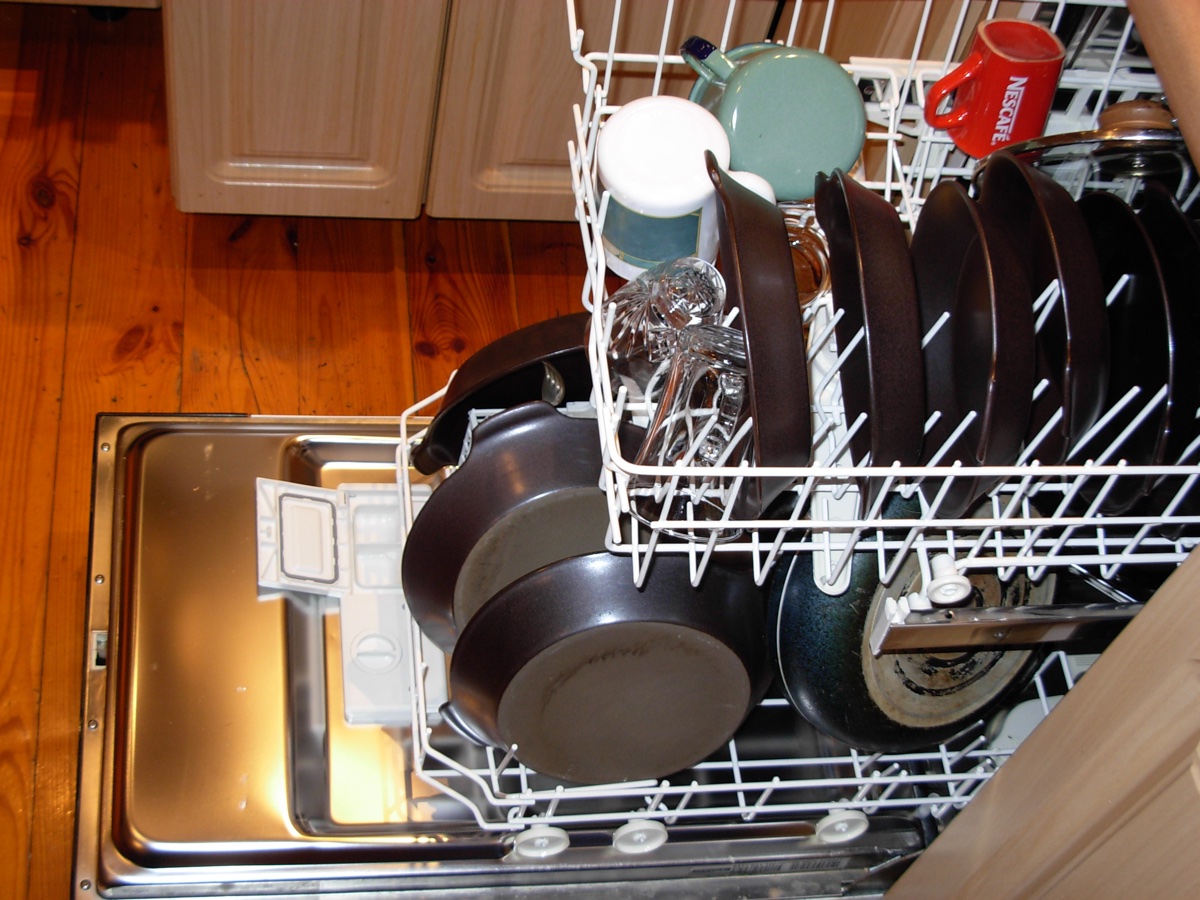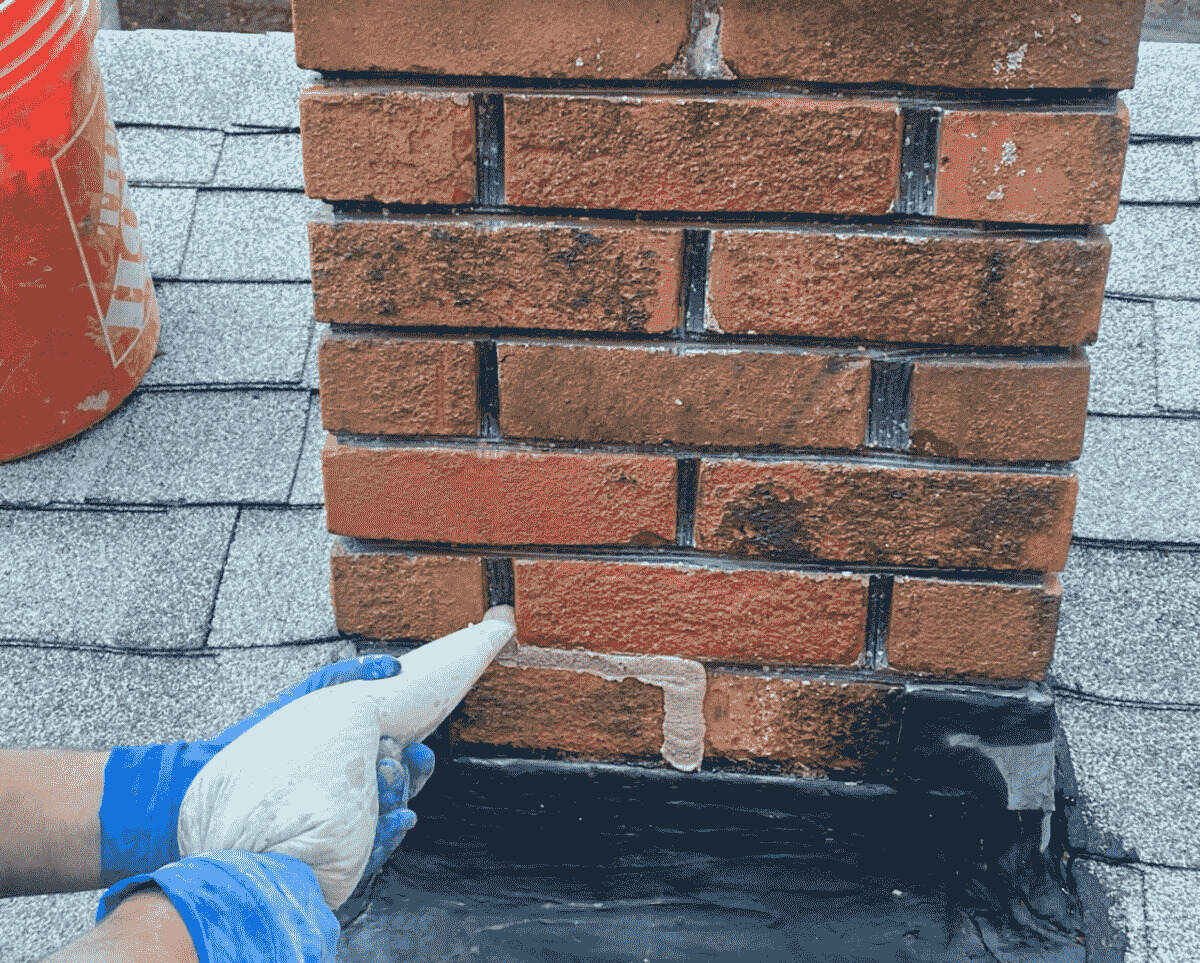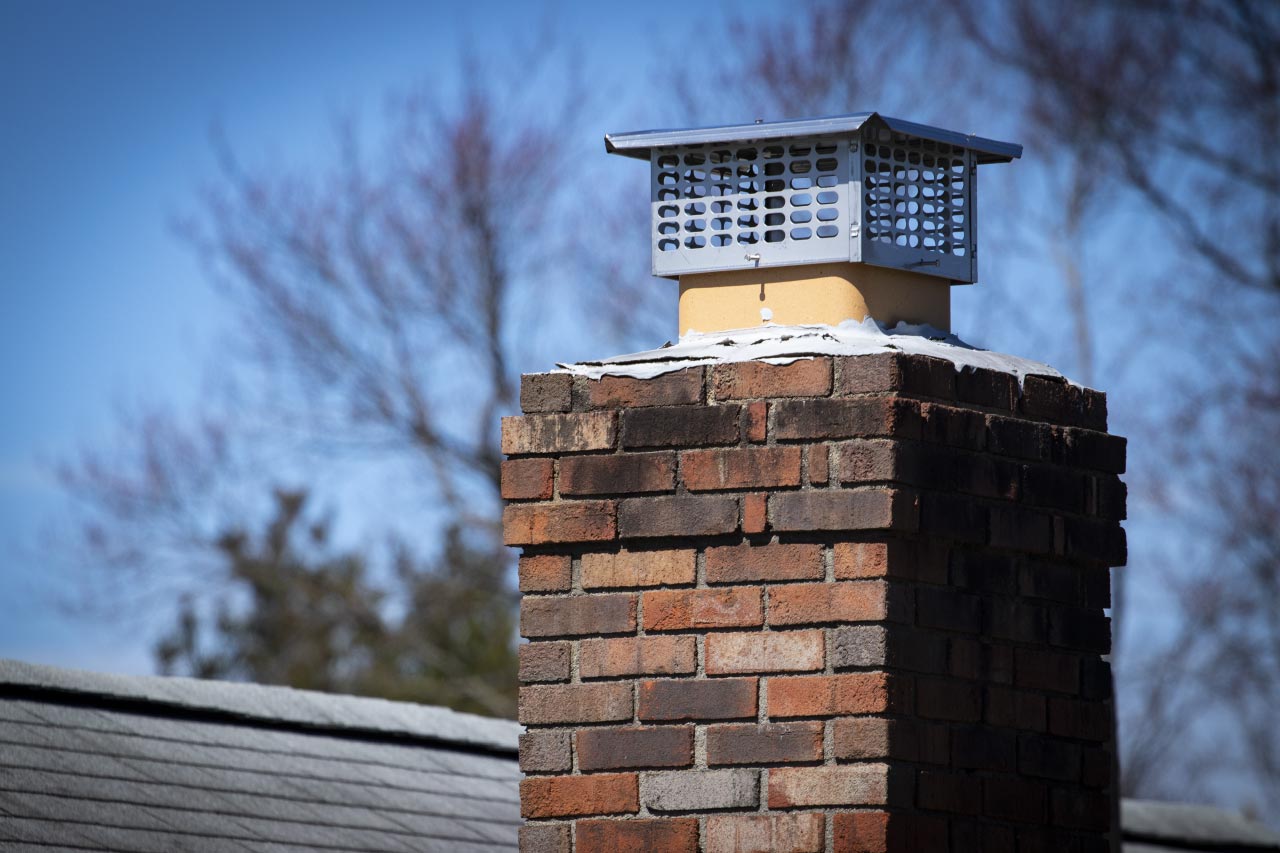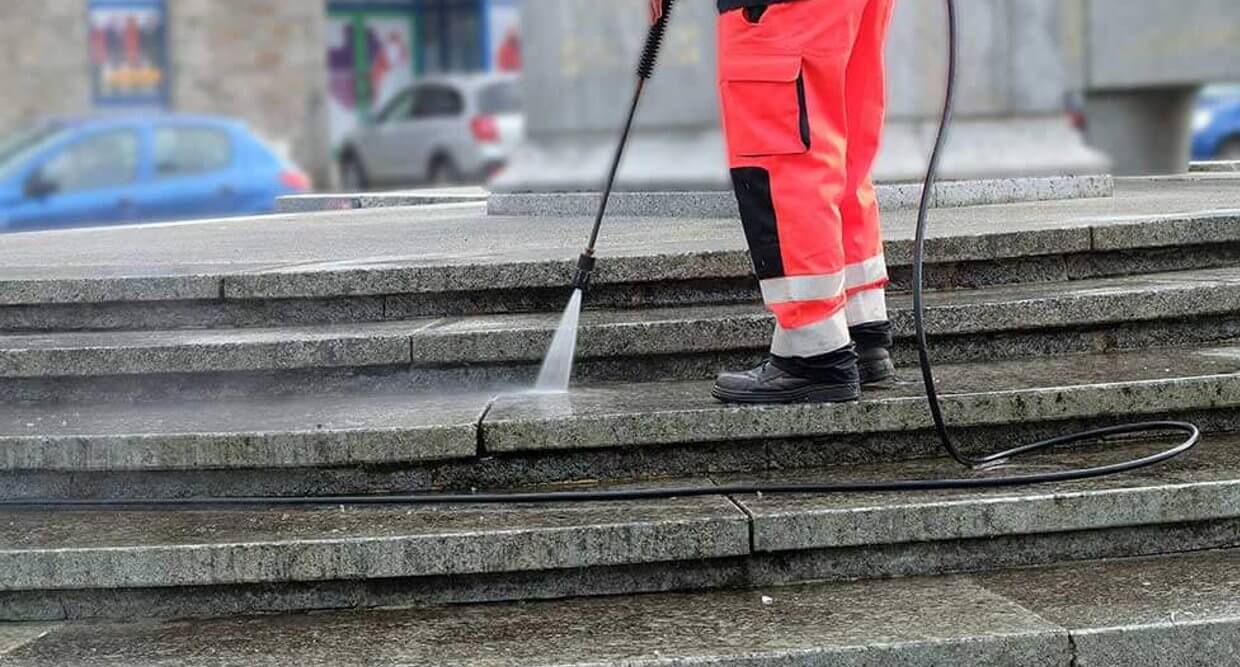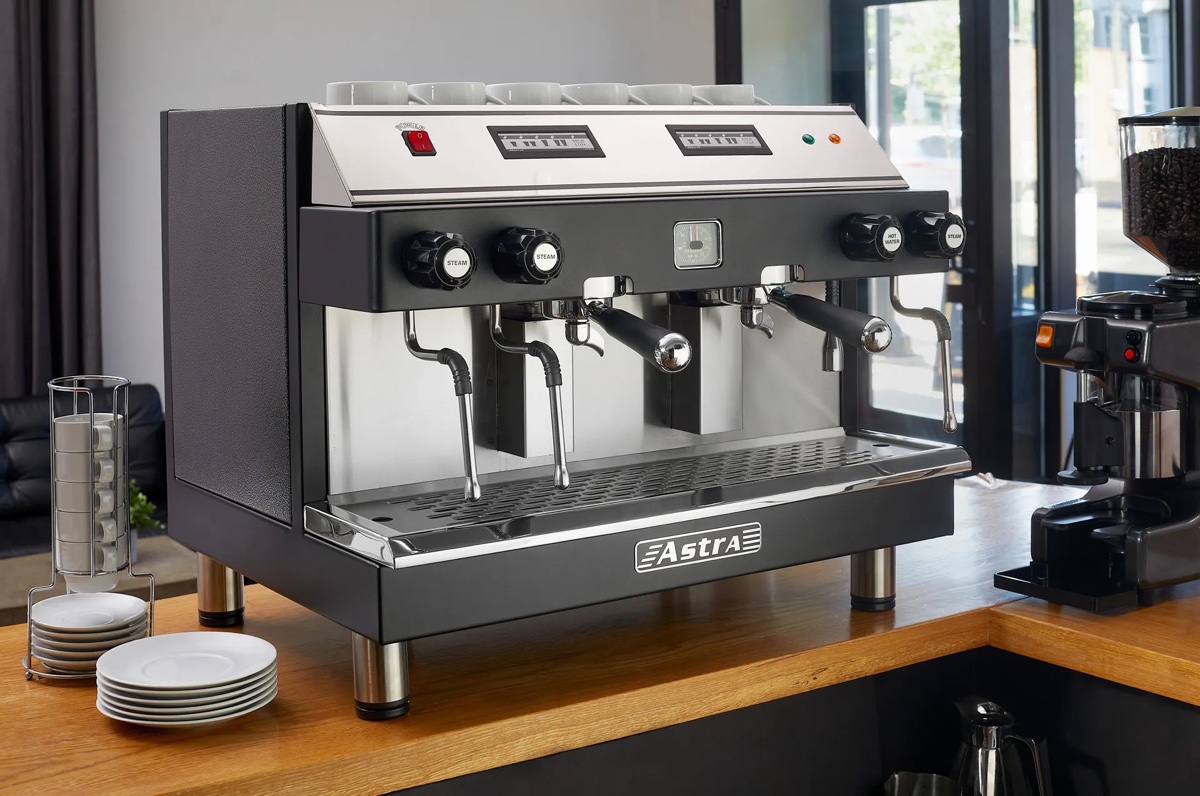Home>Home Maintenance>How Much Does Washing MAChine Repair Cost
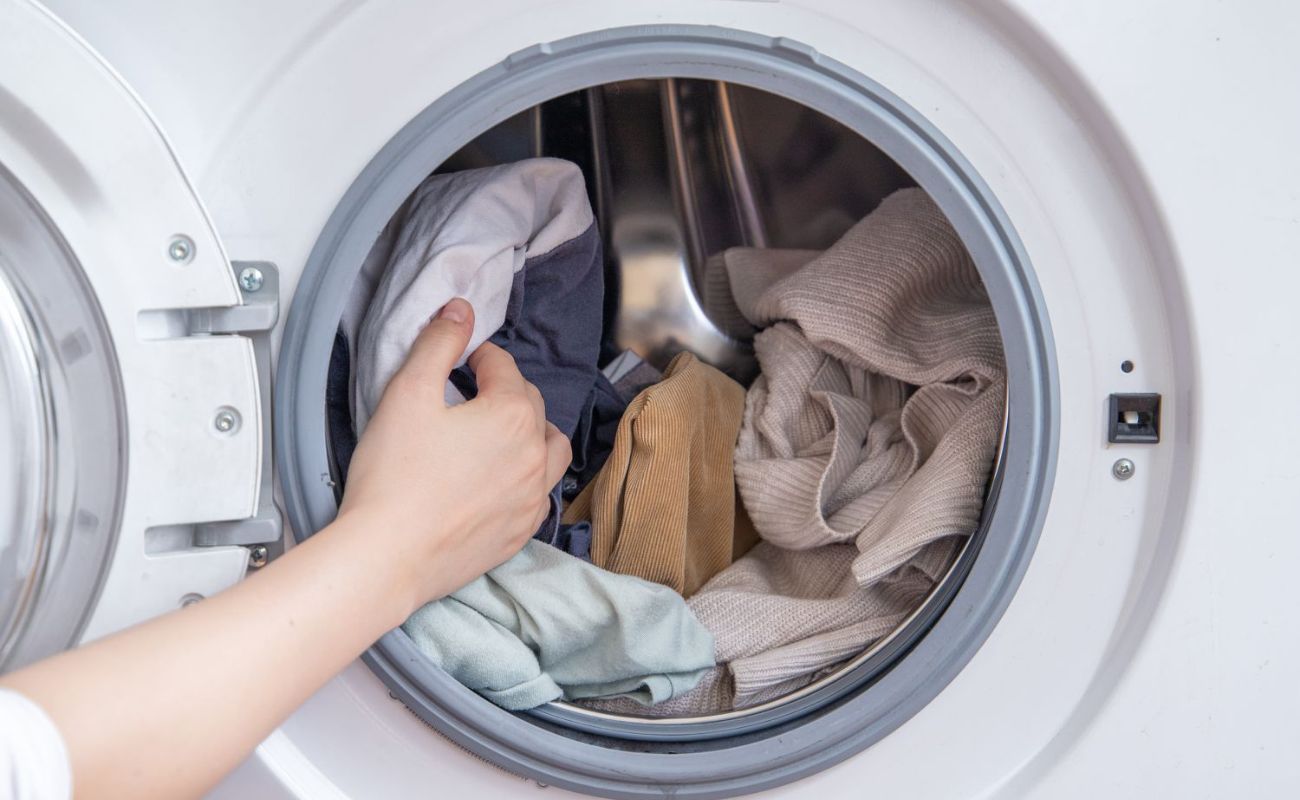

Home Maintenance
How Much Does Washing MAChine Repair Cost
Modified: August 21, 2024
Looking for affordable washing machine repair cost? Get the best rates for home maintenance services, including washing machine repairs, to keep your appliances running smoothly.
(Many of the links in this article redirect to a specific reviewed product. Your purchase of these products through affiliate links helps to generate commission for Storables.com, at no extra cost. Learn more)
Introduction
Welcome to our comprehensive guide on the costs associated with washing machine repair. If you’re a homeowner, you know how essential a functioning washing machine is to your daily routine. From keeping your clothes clean and fresh to saving precious time and energy, a reliable washing machine is a valuable asset in any home.
However, like any other appliance, washing machines can encounter issues that require professional repair. From strange noises and leaks to mechanical failures and electrical problems, there are a variety of common issues that can disrupt the smooth operation of your washing machine.
In this guide, we will walk you through the common problems that can occur with washing machines, discuss the factors that can impact repair costs, provide a breakdown of the average cost of washing machine repair, and offer tips for minimizing repair expenses. Whether you are experiencing issues with your current washing machine or simply want to be prepared for any future repairs, this article will equip you with the knowledge you need to make informed decisions.
Before we dive into the details, it’s important to note that while some minor issues can be resolved with simple DIY solutions, many washing machine repairs require the expertise of a professional technician. Attempting to fix complex problems without the necessary experience and knowledge can lead to further damage and potentially harm your safety. Therefore, it’s crucial to assess the severity of the issue before deciding whether to tackle it yourself or call in a professional.
With that said, let’s explore some of the common washing machine issues you may encounter and the potential costs associated with their repair.
Key Takeaways:
- Washing machine repairs can cost between $100 to $500, depending on the issue. Regular maintenance and prompt attention to minor problems can help minimize repair expenses.
- While DIY repairs can save money, complex issues are best left to professional technicians. Researching repair service providers and considering extended warranties can help manage repair costs.
Read more: How Much Does A Power Washer Cost
Common Washing Machine Issues
Washing machines are complex appliances that consist of various components and systems. As such, they can experience a range of issues over time. Understanding these common problems can help you identify the issue at hand and determine whether professional repair is necessary. Here are some of the most frequent washing machine issues:
- Leaking: A leaking washing machine can be caused by several factors, such as a worn-out door seal, damaged hoses, or a faulty water inlet valve. Identifying the source of the leak is crucial to determine the repairs needed.
- Loud noises: If your washing machine is making unusual noises during operation, it could be due to worn-out drum bearings, a malfunctioning motor, or loose components. Ignoring these noises can lead to further damage and potentially costly repairs.
- Not spinning: When your washing machine fails to spin properly, it can be caused by a malfunctioning drive belt, a faulty motor coupling, or a malfunctioning control board. This issue can prevent your clothes from properly drying and require professional attention.
- Not draining: If the water doesn’t drain properly from your washing machine, it may indicate a clogged or damaged drain pump, a blocked drain hose, or a malfunctioning control board. This issue can lead to standing water and mold growth if not addressed promptly.
- Failure to start: If your washing machine doesn’t start when you press the power button, it could be due to a faulty door latch, a malfunctioning control panel, or an electrical issue. Professional troubleshooting is recommended to identify and resolve the problem.
These are just a few examples of the common issues that can arise with washing machines. It’s essential to address these problems promptly to prevent further damage and the need for more extensive repairs.
Now that we’ve examined the common issues, let’s move on to discussing the factors that can impact the cost of washing machine repair.
Factors That Affect Repair Costs
When it comes to washing machine repair costs, several factors can influence the final price. Understanding these factors can help you anticipate repair expenses and make informed decisions. Here are key elements that can affect the cost of repairing your washing machine:
- Type of repair: The type of repair needed greatly impacts the cost. Minor issues such as replacing a seal or fixing a small electrical problem are typically less expensive compared to major repairs like replacing a motor or control panel.
- Extent of the problem: The severity of the issue can significantly affect the repair cost. For example, a minor leak may only require a simple fix, while a major leak that requires replacing a significant component can be more expensive.
- Cost of replacement parts: If your washing machine requires replacement parts, the cost of those parts can vary. Common components like belts or hoses are generally affordable, while more specialized parts like circuit boards or motors can be more expensive.
- Brand and model: Different brands and models can vary in terms of repair costs. Luxury or high-end brands may have higher repair expenses due to the quality and availability of replacement parts.
- Warranty coverage: If your washing machine is still under warranty, the repair costs may be covered, either partially or in full, by the manufacturer. It’s important to check the warranty terms and conditions to understand what repairs are included.
- Location: The location of your home can also impact repair costs. Labor rates can vary depending on the region or city you reside in, and this can influence the overall cost of repair services.
Keep in mind that these factors are not exhaustive and there may be additional variables that impact repair costs. It’s always best to consult with a professional technician for an accurate assessment and quote.
Now that we’ve explored the factors that can affect repair costs, let’s delve into the average cost of washing machine repairs.
Average Cost of Washing Machine Repair
The cost of repairing a washing machine can vary depending on the factors we discussed earlier. It’s important to note that these are average estimates, and the actual cost can differ based on your specific situation, location, and the repair service you choose.
On average, the cost of repairing a washing machine can range from $100 to $500. The following are common repairs and their estimated costs:
- Replacing a faulty motor: Motor replacements are one of the more expensive repairs and can cost anywhere from $200 to $500, depending on the brand and model of your washing machine.
- Repairing or replacing a water pump: Water pump issues are relatively common and can cost between $150 to $300, excluding labor charges.
- Fixing a damaged or worn-out belt: Belt replacements typically range from $100 to $200, including parts and labor.
- Replacing a malfunctioning control board: Control board repairs or replacements can vary significantly in price, ranging from $150 to $400 or more.
- Fixing a leak or replacing a seal: The cost of fixing leaks can vary depending on the location and complexity of the issue. On average, repairing a leak or replacing a seal can cost between $100 to $300.
Remember, these prices are general estimates and can change based on various factors. It’s always recommended to obtain a detailed quote from a qualified repair technician to accurately assess the cost of repairing your specific washing machine.
Next, let’s discuss whether it’s more beneficial to attempt DIY repairs or opt for professional repair services.
DIY vs Professional Repairs
When faced with a washing machine issue, you may wonder whether to attempt a DIY repair or hire a professional technician. While DIY repairs can save you some money upfront, they may not always be the best solution. Here’s a comparison between DIY repairs and professional repair services to help you make an informed decision:
Read more: How Much Does It Cost To Fix A Washer
DIY Repairs
DIY repairs can be a cost-effective option for minor issues that don’t require specialized skills or tools. Some advantages of DIY repairs include:
- Cost savings: DIY repairs can save you money on labor costs since you will be doing the work yourself.
- Convenience: If the issue is minor and you have the necessary tools and knowledge, you can fix it at your own convenience without having to schedule an appointment with a technician.
- Learning experience: Tackling DIY repairs can be a rewarding and educational experience, allowing you to learn more about how your washing machine works.
However, it’s important to consider the potential drawbacks of DIY repairs:
- Limited expertise: You may not have the expertise to accurately diagnose the problem and fix it correctly, potentially leading to additional damage or even safety hazards.
- Lack of warranty: DIY repairs may void any existing warranty on your washing machine, leaving you responsible for future repairs or replacements.
- Time-consuming: DIY repairs can be time-consuming, especially if you’re not familiar with the process. This can be inconvenient if you rely heavily on your washing machine.
Professional Repair Services
Professional repair services offer several advantages over DIY repairs:
- Expertise and knowledge: Professional technicians have the training, experience, and knowledge to accurately diagnose and repair complex issues, ensuring a proper and long-lasting fix.
- Warranty protection: Reputable repair services often provide warranties on their work, giving you peace of mind and protecting you from additional repair costs in the future.
- Time-efficient: Hiring a professional technician saves you the time and effort of researching and troubleshooting the problem yourself.
While there are advantages to professional repairs, it’s important to consider the potential disadvantages:
- Higher cost: Professional repairs typically come with labor costs and service charges, making them more expensive upfront compared to DIY repairs.
- Availability and scheduling: Depending on the demand for repair services in your area, you may need to wait for an appointment, which may be inconvenient if your washing machine is not functional.
In general, DIY repairs are suitable for minor, easily resolvable issues, while complex or major problems are best left to professionals. Remember to assess your own skills, comfort level, and the severity of the issue before deciding which approach to take.
Now, let’s move on to some tips for reducing washing machine repair costs.
Regular maintenance can help prevent costly washing machine repairs. If a repair is needed, costs can range from $50 for a simple fix to $350 for more complex issues. Always get a quote before proceeding with the repair.
Tips for Reducing Washing Machine Repair Costs
While repair costs are inevitable at times, there are measures you can take to minimize the frequency and expense of washing machine repairs. Here are some helpful tips:
- Maintain regular cleaning and maintenance: Follow the manufacturer’s guidelines for cleaning and maintaining your washing machine. Regularly clean the drum, filters, and detergent dispensers to prevent clogs and mechanical issues.
- Use the right detergent: Use detergent specifically designed for washing machines to avoid buildup and clogs that can impact the machine’s performance.
- Load your machine properly: Overloading your washing machine puts excess strain on the motor and other components. Follow the recommended load capacity to prevent unnecessary wear and tear.
- Inspect hoses and connections: Regularly check the hoses and connections for any signs of wear, leaks, or blockages. Replace any damaged or worn-out parts promptly to prevent leaks and water damage.
- Avoid overuse of fabric softeners: Excessive use of fabric softeners can lead to buildup that affects the performance of your washing machine. Follow the recommended dosage to prevent clogs and residue.
- Address minor issues promptly: Don’t ignore minor problems as they can escalate and lead to more extensive repairs. Promptly address any unusual noises, leaks, or performance issues.
- Don’t slam the door: Gentle handling of the washing machine’s door prevents damage to the door latch and hinges, ensuring proper functioning.
- Consider extended warranties: If you’re purchasing a new washing machine, explore the option of an extended warranty. These warranties can provide coverage for repair costs beyond the manufacturer’s warranty period.
- Research repair service providers: Before choosing a repair service, do your research. Look for reputable companies with positive reviews and competitive pricing.
- Ask for detailed quotes: When seeking professional repair services, ask for detailed quotes that include the cost of parts, labor, and any associated fees.
Implementing these tips can help prolong the life of your washing machine and minimize the need for frequent and costly repairs. However, it’s important to remember that certain issues are unavoidable and may require professional intervention.
Now, let’s wrap up our guide on washing machine repair costs.
Conclusion
Having a fully functional washing machine is crucial for any household, but occasional repairs are inevitable. Understanding the common issues that can arise and the factors that affect repair costs can help you better prepare for any unexpected expenses. While DIY repairs may be suitable for minor issues, more complex problems are best left to professional technicians who have the expertise and knowledge to accurately diagnose and fix the problem.
When it comes to repair costs, the average price can range from $100 to $500, depending on the type of repair needed, the extent of the problem, and the cost of replacement parts. It’s always advisable to obtain a detailed quote from a reputable repair service to ensure an accurate assessment of the repairs required for your specific washing machine.
To minimize future repair costs, it’s essential to perform regular cleaning and maintenance, use the right detergent, avoid overloading the machine, and promptly address any minor issues that arise. Additionally, considering extended warranties and researching reliable repair service providers can prove beneficial in managing repair expenses.
Remember, investing in the maintenance and timely repair of your washing machine can prolong its life and prevent costly replacements in the long run.
We hope this comprehensive guide has provided you with valuable insights into washing machine repair costs and ways to minimize those expenses. By being proactive and informed, you can keep your washing machine running smoothly and enjoy the convenience it brings to your daily life.
Frequently Asked Questions about How Much Does Washing MAChine Repair Cost
Was this page helpful?
At Storables.com, we guarantee accurate and reliable information. Our content, validated by Expert Board Contributors, is crafted following stringent Editorial Policies. We're committed to providing you with well-researched, expert-backed insights for all your informational needs.
